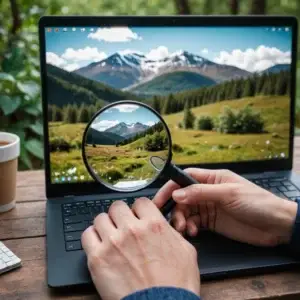African American pioneers have taught us that diversity and inclusion are critical to the success of the computer science and tech industries. From the early days of computing to the present, African American computer scientists and engineers have played vital roles in shaping the industry and pushing technological advancements forward. From pioneers like Annie Easley (highlighted here) and Katherine Johnson, whose work at NASA helped put humans on the moon, to contemporary innovators like Kimberly Bryant, who founded Black Girls Code to help close the gender and racial gap in technology, we’ll highlight the individuals who have broken barriers and paved the way for future generations.
Although African American has made some of the most significant contributions to the field of computer science, they were also faced with significant challenges, from systemic racism and discrimination to a lack of representation and mentorship. By overcoming these obstacles and persevering in the face of adversity, they have paved the way for future generations of African American technologists and contributed to the ongoing evolution of computing. We’ll explore how they have done so and what lessons we can learn from their experiences. We’ll also discuss the importance of diversity and inclusion in computer science and the tech industry as a whole. While progress has been made, there is still much work to be done to ensure that all voices are heard and all perspectives are represented. By highlighting the contributions of African American computer scientists, we hope to inspire the next generation of innovators and create a more inclusive and equitable industry.
Annie Easley and Mark Dean are two of the most prominent and innovative figures in the field of computer science. Their contributions to the industry have revolutionized the way we think about technology and have paved the way for future innovations. In this article, we’ll explore their achievements and the impact they’ve had on computer science.

Annie Easley was an African American computer scientist and mathematician who played a vital role in the development of computer science during her time at NASA. Easley was born in Birmingham, Alabama, in 1933, and her early interest in science and mathematics led her to study at Xavier University in New Orleans, where she earned a degree in pharmacy. However, after working in the field for a few years, Easley discovered her passion for computer programming and decided to pursue a career in that field.
In 1955, Easley began her career as a “human computer” at NASA, working on calculations for rocket trajectories. However, as computers became more advanced, Easley quickly moved up the ranks and became one of the agency’s leading computer programmers. She worked on numerous projects during her career, including the Centaur rocket, a high-energy battery technology, and the development of software to manage and analyze data from wind turbines.
One of Easley’s most significant accomplishments was her work on the Battery-Operated Systems Test (BOST) program, which aimed to develop more efficient batteries for use in electric vehicles. Easley’s expertise in computer programming was essential in the development of the software used to model and test the batteries. Her work was crucial in helping to create more efficient and reliable batteries for use in electric vehicles, an innovation that has had a significant impact on the automotive industry.
Despite her many achievements, Easley faced numerous challenges and obstacles throughout her career. Easley faced significant discrimination and prejudice throughout her career, from being denied entry to college-level courses to being passed over for promotions and opportunities. As an African American woman in the 1960s and 1970s, she faced systemic racism and sexism that made it difficult for her to advance in her career. Easley also grew up in a segregated community and attended segregated schools and came from a low-income background. This meant that she had limited access to educational opportunities and training, particularly in the STEM fields. She had to work multiple jobs to support herself while pursuing her education, which added an additional layer of difficulty to an already challenging situation. As one of the few African American women working in computer science at the time, Easley had few role models or mentors to turn to for guidance and support. This lack of representation made it difficult for her to navigate the industry and find opportunities for advancement.
Despite these challenges, Easley persisted in her pursuit of a career in computer science. She completed a degree in mathematics and began working at NASA’s Lewis Research Center, where she made significant contributions to the development of software for the Centaur rocket stage. She also worked on numerous other projects during her 34-year career at NASA, including energy conversion systems and alternative fuels.
Easley’s perseverance in the face of significant challenges is a testament to her determination and resilience. Despite facing discrimination, economic hardship, and other obstacles, she was able to make significant contributions to the field of computer science and inspire future generations of African American technologists. Her legacy continues to be an inspiration to those who face similar challenges today.

Mark Dean is a computer scientist and engineer who is best known for his work in the development of personal computers. Dean was born in Jefferson City, Tennessee, in 1957 and went on to study electrical engineering at the University of Tennessee, where he earned both his bachelor’s and master’s degrees.
Dean’s career began at IBM, where he quickly rose through the ranks to become one of the company’s top engineers. In 1981, he was part of the team that developed the IBM PC, a landmark in the history of personal computing. Dean’s contributions to the project included the development of the first color graphics adapter and the ISA bus, which allowed for the expansion of the PC’s capabilities.
Dean’s work on the IBM PC revolutionized the computer industry, making personal computing accessible to millions of people around the world. He went on to work on numerous other projects during his career, including the development of the first gigahertz chip and the development of technologies used in the creation of the PlayStation 3.
As an African American computer scientist, Dean faced a number of challenges throughout his career as well. Like Annie Easley, Dean also grew up in a low-income household and had to work hard to finance his education. African American students are often underserved by the education system, which can result in lower-quality education and fewer opportunities to develop the skills needed to pursue careers in computer science. He attended a historically black college, the University of Tennessee, which provided him with the opportunity to receive a high-quality education despite his financial limitations. Dean, recognizing the challenges of low-income household members receiving quality education in STEM fields, he co-founded the National Society of Black Engineers, which provides support and resources to African American students pursuing careers in engineering and technology. Later in his career, he also founded a scholarship program at the university to help other students from low-income backgrounds pursue careers in computer science. When Dean began his career in the 1970s, there were still very few African American computer scientists working in the industry. This made it difficult for him to find mentors and role models who could help guide his career and provide support and encouragement. Despite this, Dean was determined to succeed and looked to other successful African Americans in different fields, such as Dr. Martin Luther King Jr. and Jackie Robinson, for inspiration. Throughout his career, Dean experienced racism and discrimination in various forms. He recalls being mistaken for a janitor early in his career and being the only African American in the room during important meetings. Despite these challenges, he remained focused on his work and refused to let racism and discrimination deter him from achieving his goals.
Despite these challenges, Dean went on to make significant contributions to the field of computer science. In addition to his work on the personal computer, he also developed the first color PC monitor and played a key role in the development of the Industry Standard Architecture (ISA) system, which allowed different components of the PC to communicate with each other. Today, he continues to inspire future generations of computer scientists as a professor at the University of Tennessee.
Both Annie Easley and Mark Dean have exemplified throughout their careers the importance of diversity and inclusion as critical elements to the success and achievement of the computer science and tech industries. They’ve taught us that diverse teams bring a range of perspectives and experiences to the table, which can lead to more creative and innovative solutions. When people from different backgrounds work together, they can approach problems from multiple angles and come up with new ideas that might not have been possible otherwise. Studies have shown that diverse teams make better decisions than homogenous ones. By bringing together people with different backgrounds and viewpoints, teams can avoid groupthink and make more informed, thoughtful decisions. By creating a more inclusive industry, companies can tap into a wider pool of talent. When people feel valued and included, they are more likely to pursue careers in tech and bring their skills and talents to the industry.
When companies prioritize diversity and inclusion, they are better able to understand and meet the needs of diverse users. This can lead to the development of more accessible, user-friendly products and services that benefit everyone. The tech industry has a significant impact on society, and companies have a responsibility to ensure that their products and services are inclusive and equitable. By prioritizing diversity and inclusion, companies can help mitigate the negative effects of technology and work towards a more just and equitable future.
Annie Easley and Mark Dean are two of the most innovative and influential figures in the field of computer science. Although they faced a number of challenges as African American computer scientists, including a lack of representation and mentorship, racism and discrimination, economic barriers, and educational disparities, their contributions to the industry have had a significant impact on the way we think about technology and have paved the way for future innovations. Through their groundbreaking work, Easley and Dean have inspired countless people to pursue careers in computer science, and their legacy will continue to inspire generations to come. Their stories serve as an inspiration to future generations of African American technologists and underscore the importance of diversity and inclusion in the tech industry. By creating a more inclusive and equitable industry, we can unlock the full potential of technology and ensure that it benefits everyone, regardless of their background or identity.



